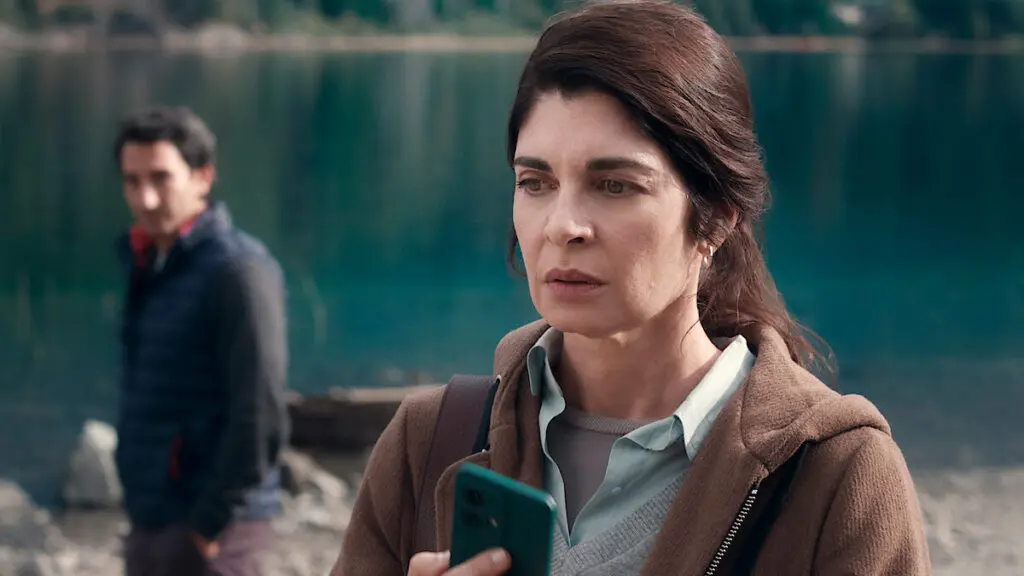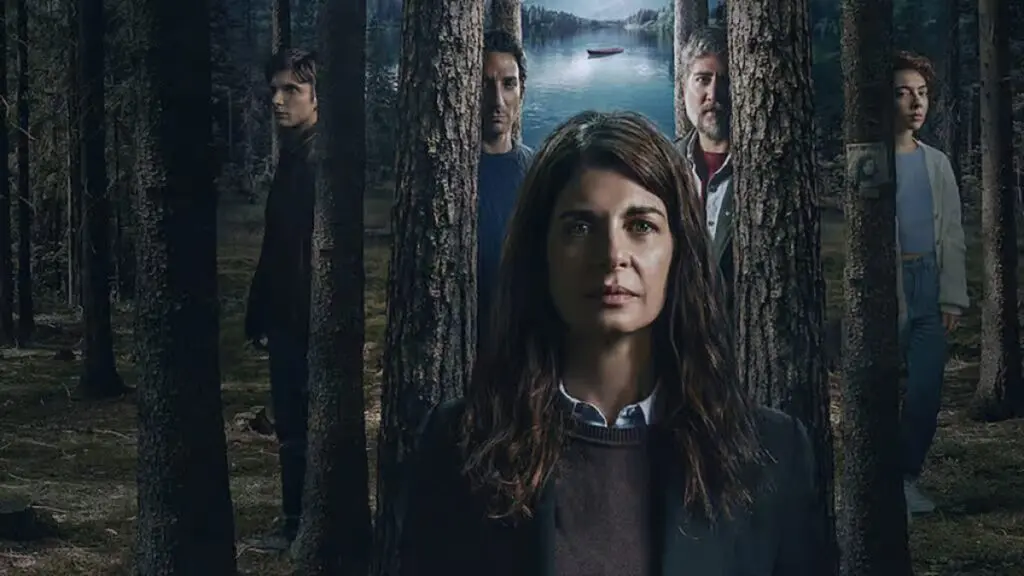Summary
Caught operates according to the typical Harlan Coben playbook, but the subject matter is somehow even bleaker than usual.
It’s beginning to feel like I’m in the plot of a novel about an ill-tempered critic who is being haunted by Harlan Coben adaptations. We’ve had two already on Netflix in 2025: Missing You and Just One Look. The latest, Caught, adapted from the same-titled 2010 novel, has the distinction of being the first ever Latin-American adaptation of the author’s work – it’s a Spanish-language Argentinian series directed by Miguel Cohan (Blood Will Tell) and Hernán Goldfrid – but otherwise adheres to the typical playbook to a fault. The only meaningful difference is that the subject matter is even bleaker than usual.
That subject matter is terrible fates bestowed upon teenage girls – and one in particular – which is never a cheery topic. These shows aren’t generally laugh-a-minute at the best of times, but there’s no levity at all here, with several lives being upended in the span of a single episode and even more trauma following that. The twists – and this being a Coben story, there are a fair few – feel less like pleasing aha moments and more like multiple twists of the knife.
Set in the picturesque Bariloche, Argentina, Caught follows the exploits of intrepid investigative journalist Ema Garay (Soledad Villamil, as seen in A Twelve Year Night, So Much Love to Give), whose recent work includes baiting unpunished criminals into sting operations by posing as a teenage girl on messaging services. She’s a bit like a slightly more official version of those vigilante types on Facebook who live-stream themselves terrifying people who they’re often not even sure are guilty. And this is important to the plot.
I wouldn’t quite call Caught a commentary on such matters, but there’s definitely an undercurrent. Ema’s sleuthing leads her to accuse – very publicly – a well-liked and mild-mannered social worker named Leo Mercer (Juan Minujin, as seen in The Two Popes, The Wrath of God, The Marriage App), whose life is ruined in an instant on entirely false pretences. Realizing that both she and Leo have been misled, Ema delves into the case of a missing 16-year-old girl with a suddenly personal stake in the investigation’s outcome.
If you were playing Harlan Coben bingo, you’d have a full house here in just a couple of episodes. A terrible crime that isn’t what it initially appears causes a flawed protagonist to confront their own past and prejudices until the full truth is revealed in a series of unexpected – but not really – twists and turns? Haven’t we seen something like that before? Very recently?
Yes, we have, which is part of why Caught feels like too much of an okay thing. I thought it had been suspiciously undermarketed when I saw it squatting in the thumbnails and assumed, logically, that it was because it was somehow of lesser quality than these things usually are. But it’s not, really. It’s just coming so close to the last two that it feels a bit stale before it even has a chance to get going, and isn’t especially impressive even after that.
What you need in a derivative story with a familiar structure is a reason to latch on, and while previous Coben adaptations have sometimes succeeded in this regard – consider Michelle Keegan’s performance in Fool Me Once, for instance, which holds a ridiculous plot together – Caught suffers from having a protagonist who is introduced being so obviously wrong that you struggle to empathize with her after that. Being reckless about accusing people of secretly meeting young girls is a recipe for disaster, but this doesn’t constitute a critique because the implications of Ema’s rash decision-making are never really interrogated. It’s just an oopsie in her standard arc of realizing she should perhaps think things through a bit before she comes out of the gate swinging – or filming, as the case may be.

Soledad Villamil in Caught | Image via Netflix
I just consistently felt like Caught was giving Ema too easy a ride. It isn’t until deep into the series – like, the fifth episode – that someone tells her to her face that a lot of what has transpired is her fault for going rogue. You don’t say! That should have been the starting point. And even then, she doesn’t seem that bothered about it beyond cracking open a bottle of wine.
The show’s exploration of the perils of online sex work is similarly toothless, largely amounting to a warning that it’s probably a bad idea and there are creeps out there willing to exploit it, which you’d think should be pretty self-evident at this point. When the drama of a story hinges on the “surprise” that a pretty teenage girl was being exploited by a nasty dude, I’m not sure that constitutes a twist. It’s like having a cliffhanger to reveal that the villain breathed in and then breathed out again.
It’d be a lie to suggest that the typical formula doesn’t work well enough here to justify a binge, but it’s also fair to point out that a time-hopping structure bogs down the pacing and makes the A-B progression feel scatty at times, especially because the flashbacks aren’t always clearly delineated and feel wedged in awkwardly. The performances, too, are serviceable but ultimately lacklustre, including several supporting turns that give the impression the actors couldn’t really be bothered being there. On a macro level, it’s all perfectly functional, but it’s not an especially refined vintage.
I’m left wondering, then, if we need another one of these for a while. Sure, there are contractual obligations to fulfil, and I suspect we’ll scarcely have time to blink before another plops into our “New On Netflix” queue, but the strategy is beginning to feel self-defeating. There’s value, sometimes, in knowing what you’re getting, but there’s more value in getting something worthwhile.
RELATED:




